


WordPress is currently powering over 40% of all sites on the web – it’s the most popular content management system (CMS) available. It’s also open-source, so anyone can use and modify this platform for free.
However, building and maintaining a WordPress website will come with a cost. Aside from purchasing a hosting plan and domain name to make it live, you will also need additional features to make it function properly.
So, how much does using WordPress cost? To answer this question, we’ll go through the main factors that affect WordPress website pricing, such as a domain name, web hosting, themes, plugins, security features, and web development.
By the end of this article, you will know how much you need to prepare before using this CMS.
WordPress comes in two different versions – WordPress.org and WordPress.com.
WordPress.org lets you download the self-hosted and open-source CMS. This version is technically free to use, but you need to buy, set up, and manage your own hosting to launch the website.
Meanwhile, WordPress.com is a freemium website builder. Its users can access the free version or choose one of the five premium plans:
The comparison table below shows the differences between WordPress.com and WordPress.org in terms of pricing.
| WordPress.org | WordPress.com | |
| Hosting | $2–$100/month. | All plans include managed WordPress hosting. |
| Domain name | $2–$20/year. | Premium plans include a free domain for one year. |
| Plugins | $0–$100/year per plugin. | $0–$100/year per plugin. However, users must upgrade to the Business plan to install plugins on the WordPress.org repository and third-party websites. |
| Themes | $0–$250/license. | $0–$250. However, users must upgrade to the Business plan to install plugins on the WordPress.org repository and third-party websites. |
| SSL certificate | Free or up to $100/year for a premium SSL certificate. | All premium plans include a free SSL certificate. |
| eCommerce tools | $0–$500/year with an eCommerce plugin. | Available in eCommerce premium plan, which costs $45/month. |
At a glance, WordPress.com might seem to be much more affordable than WordPress.org since it includes managed hosting, a domain name, and an SSL certificate. Estimating the regular expenses is also much easier thanks to its clear pricing plans.
In the long term, however, WordPress.org offers much greater value for money due to the following reasons:
In other words, even if the upfront costs of using the open-source WordPress can be higher, the ongoing expenses will be much lower compared to WordPress.com. That’s why I’ll only focus on the pricing for WordPress.org.
The cost to build a fully functional WordPress website depends on several aspects, such as the hosting plan, domain name, tools, and theme.
To help you budget effectively, I’ll dive into each of these pricing factors of using this content management system.
One of the most crucial components of a WordPress site is web hosting, which stores your web files and makes a website accessible to visitors.
A few factors influence hosting costs, including the type of web hosting plan you sign up for.
Here are some common types of web hosting plans:
If you’re looking for an affordable solution to start with, consider shared hosting plans. However, if you wish to install WordPress on your hosting account with ease, opt for WordPress hosting. This option also includes all the tools needed for your WordPress website to work properly.
Another aspect to consider that can impact a hosting cost is the web host. With so many web hosting providers, it’s crucial to do proper research before making a choice.
Check the following features when looking for a reliable hosting provider:
If you’re not sure what is the best web hosting provider for your WordPress site, my recommendation is to go with Hostinger. Its performance and uptime are excellent, and its custom-built control panel is beginner-friendly.
Hostinger comes with two WordPress hosting plans, starting at $1.99/month.
Besides Hostinger, I also recommend these web hosting companies:
The next element contributing to WordPress pricing is a domain name – it’s the website address that people enter in their browser address bar to access your site.
A domain name’s fee typically costs users from $2/year to $20/year, lower than a web hosting plan.
Its price depends on multiple aspects, such as the domain extension or top-level domain (TLD) that you choose.
A domain name extension is at the end of a web address. There are different types of domain extensions, and some TLDs are more popular and expensive than others.
Domain names with popular extensions like .com have higher prices since people often write these popular TLDs by default. A well-known extension also adds more credibility to the website, making visitors feel safer accessing the website.
If you look for a popular domain at an affordable price, consider choosing a new domain extension like .xyz and .online. For instance, the cost of .com in Namecheap is $5.98/year, while .xyz is priced at $1/year.
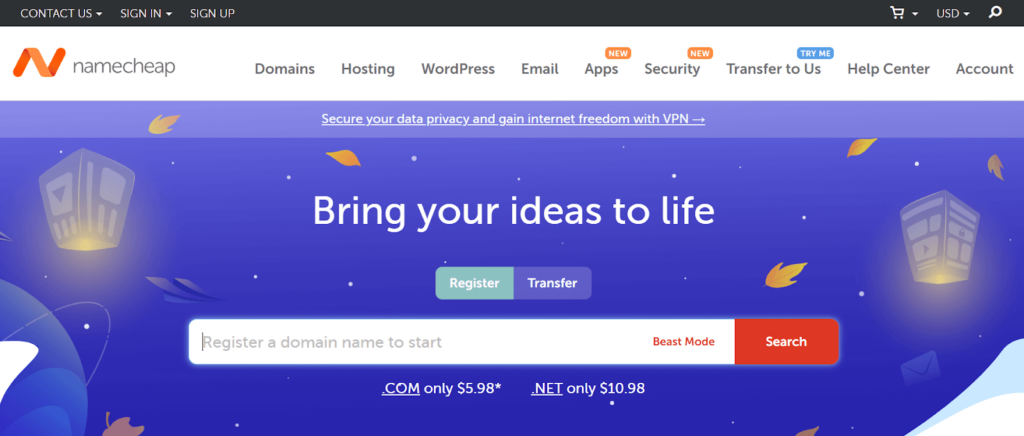
Additionally, the registrar can also impact the overall price of your custom domain name. Some domain registrars might offer more services or advantages or come with hidden fees.
Thus, make sure to consider the following aspects before choosing a domain name registrar:
Aside from purchasing a domain name from a registrar, users can also buy a domain name from some hosting providers. Many web hosts even include a free domain name in their hosting plans, letting their customers save money.
If your desired domain name is taken, reach out to the web address’s owner and try making an offer – use a tool such as WHOIS to find that person’s email address or phone number. Another option is to go to an online domain name broker, such as SnapNames.
Anyone can create a visually appealing WordPress website with the help of a theme – it’s a group of files, such as style sheets, images, and code.
There are thousands of free and paid WordPress themes, and most of them can be quickly and easily customized to suit your branding.
To keep your budget low, start with a free WordPress theme – the WordPress theme repository has over 8,000 free themes to pick from.
Many free WordPress themes also come with premium versions, letting users upgrade their theme to get more advanced features and support.
Here are some of the best free themes to consider:
For those who want to create a professional website for their business, it’s better to invest in a premium theme as it offers more customization options and third-party app integrations.
One of the best marketplaces to find a premium theme is ThemeForest, which has over 9,000 WordPress themes that usually cost around $13 to $100 for a one-time purchase.
Another place to purchase WordPress themes is Template Monster – its themes cost between $29 and $225 for a single license.
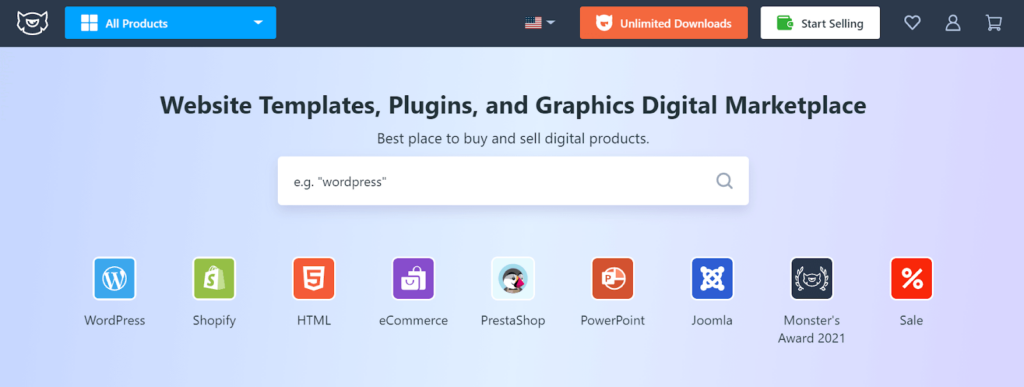
Here are a few excellent premium themes to consider:
Plugins are additional tools to quickly and easily expand the functionality of WordPress websites without coding.
For a simple website like a blog or portfolio, take advantage of any free plugins in the WordPress plugin repository. However, if you need more complex features like selling an online course or building a membership program, it might be necessary to purchase a premium plugin.
Premium WordPress plugins typically cost from $5 to over $100 – many add-ons offer a one-time charge, while others require a subscription or ongoing fee.
One of the third-party websites to find a premium plugin is CodeCanyon, which offers more than 5,000 WordPress plugins, starting from $6.
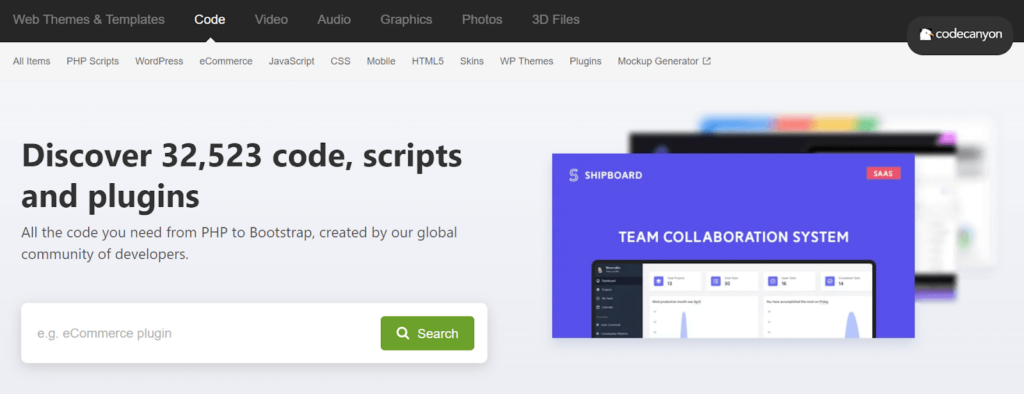
Here are a few examples of excellent WordPress plugins to start with:

Implementing security measures is crucial to keep a WordPress website safe from cyber threats, which can damage your business revenue and reputation.
One of the ways to have a secure website is to use a Secure Sockets Layer (SSL) certificate, that provides safe communication between your website and visitors’ computers. It reduces the risk of hackers sniffing around and stealing sensitive information like credit card numbers.
A WordPress hosting provider usually includes SSL certificates by default, but users can also get a free SSL certificate through a non-profit organization called Let’s Encrypt.
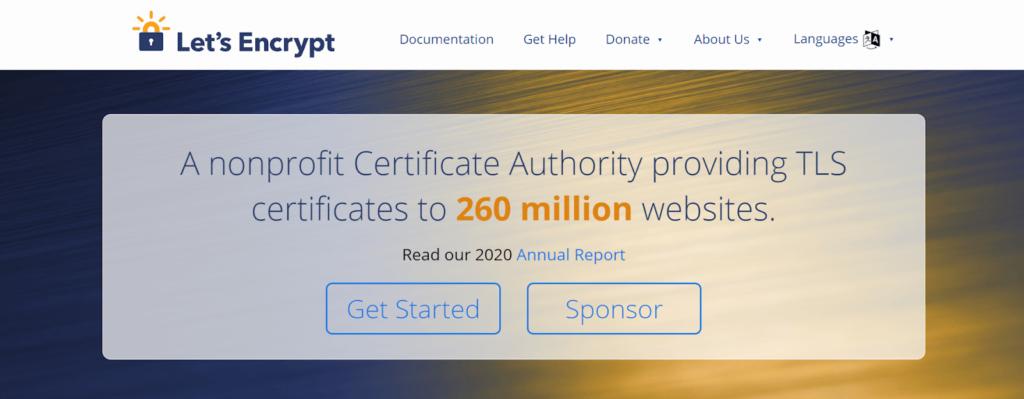
It’s also possible to purchase advanced SSL certificates from companies like Comodo SSL and RapidSSL. For example, advanced SSL certificates from Comodo SSL start at $78/year.
Aside from relying on your hosting provider’s SSL certificate and security features, it’s crucial to perform practices such as backing up your website and keeping the site updated to protect it from new security threats.
To implement security measures with ease, check out these plugins:
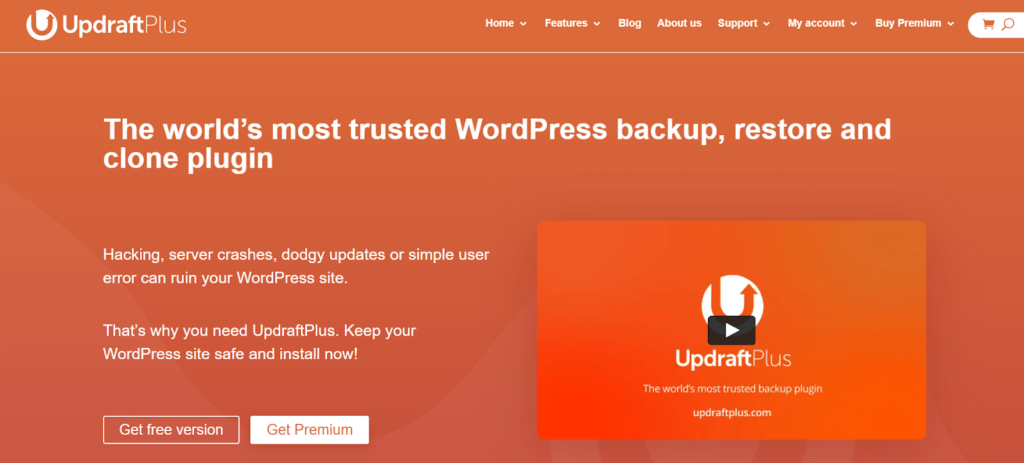
If you wish to create an eCommerce site, the features to sell products or services will also increase the cost of your website.
WordPress comes with a wide range of eCommerce plugins to turn a WordPress site into a robust online store, such as:
Remember that the payment gateways can also impact your business website cost. For instance, Stripe charges a flat rate of 2.9% and $0.30 for every successful transaction.

There are additional factors that may add up to the total cost of building a WordPress website, such as web development service and marketing costs.
It might be wise to spend money on hiring a web developer if you’re short on time or need a custom website look and features that require coding. However, it can be much more expensive than doing the job yourself.
Custom website development costs will depend on multiple factors, such as the number of site pages, website traffic, design style, and professionals you hire.
The fee of hiring a WordPress developer to create a simple custom WordPress website may start from $100 to $500. As for setting up a complex and high-quality website, WordPress developers might charge you even more.
Site owners can also hire a web designer to get a custom theme, but it might cost them hundreds to thousands of dollars.
Additionally, users can hire freelancers or website maintenance services like WebFX to maintain their WordPress websites. The cost may vary from $25/month to $449/month.
To find a developer who fits your needs, head to websites like Codeable or Toptal.

If you wish to increase your site traffic and sales after launching the website, consider preparing an additional budget for some marketing efforts.
Here are some ideas to promote WordPress websites:

To prevent you from overspending, you need to determine your site’s objectives and target audience. This can help you determine all the essential features to include in the website.
Additionally, spend time researching competitors’ websites and other inspiring sites in your niche to narrow down your website’s goals.
Here are other tips to minimize cost when building a WordPress website:

Knowing the cost of building a site is vital as it helps users calculate the investment they need to create robust WordPress sites.
However, many factors are involved in building a website, and all of them influence the overall WordPress website development cost.
Here’s the recap of some WordPress pricing factors and their estimated prices:
With that, creating a WordPress website on your own is possible with a starting budget of $25-$200/year. However, if you wish to build a complex site with unique features, it’s a good idea to hire a professional web developer instead.
Since WordPress pricing depends on what type of site you want to build, make sure to have a clear objective from the very beginning to avoid overspending.
I hope this article has answered how much WordPress costs and how to budget effectively before starting your WordPress website.
Adah Rigger
I’m amazed, I have to admit. Seldom do I encounter a blog that’s both equally educative and interesting, and let me tell you, you have hit the nail on the head. The problem is something that not enough men and women are speaking intelligently about. Now i’m very happy that I came across this during my search for something relating to this.